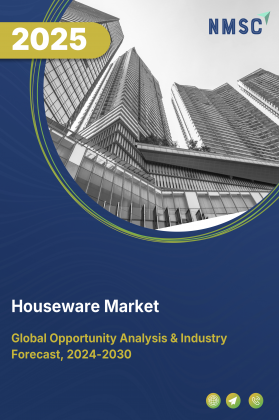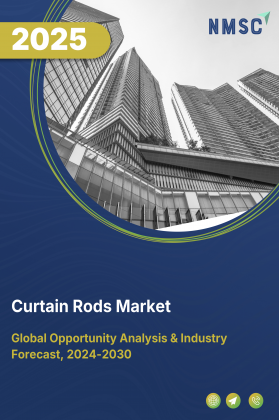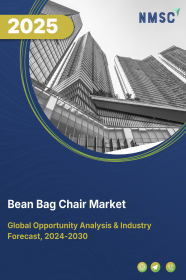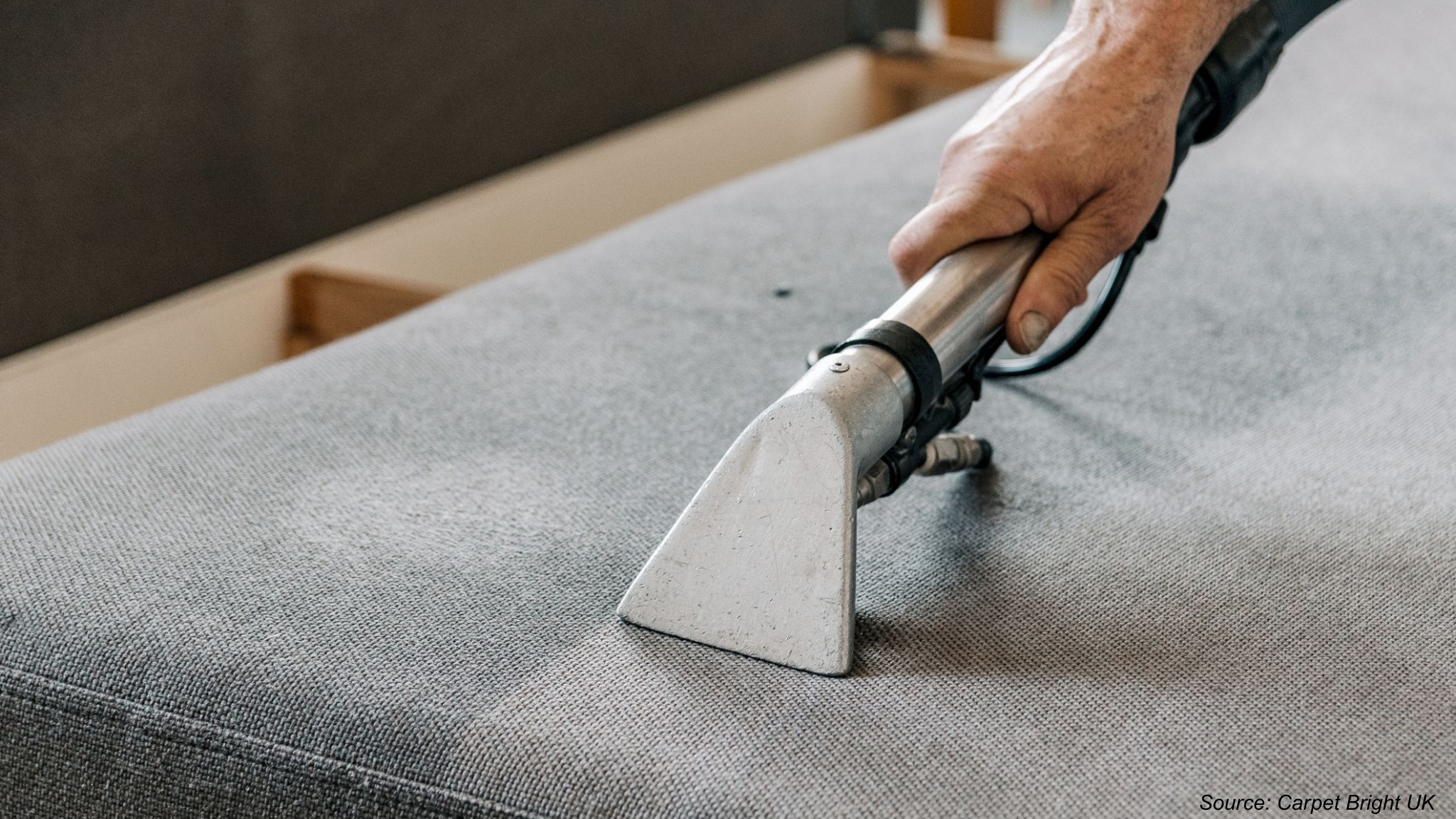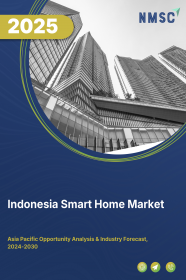
Indonesia Smart Home Market by Product Type (Smart Lighting, Smart Home Security and Surveillance, Smart Entertainment, and Smart Appliances), by Communication Protocol (Wifi, Zigbee, Z-wave, Bluetooth, and Thread), by Smart Home Hubs (Standalone Hubs, and Built-in Hubs), by Voice Assistants Integration (Amazon Alexa, Goggle Assistant, Apple Siri, and Others), by Smart Home Compatibility with Smartphones (iOS, and Android), and Others – Opportunity Analysis and Industry Forecast, 2024–2030
Industry: Retail and Consumer | Publish Date: 04-Jul-2025 | No of Pages: 179 | No. of Tables: 139 | No. of Figures: 84 | Format: PDF | Report Code : RC2279
Indonesia Smart Home Market Overview
The Indonesia Smart Home Market size was valued at USD 1.31 billion in 2023, and is predicted to reach USD 6.89 billion by 2030, at a CAGR of 26.8% from 2024 to 2030. A smart home, also referred to as a connected home, is a residential space equipped with cutting-edge technology and automation systems. Smart home systems allow for the centralized control and monitoring of a wide range of household devices, appliances, and security features through a unified network. These intelligent devices is managed remotely and often respond to voice commands or pre-set schedules, providing homeowners with enhanced convenience, energy efficiency, and security. Connected homes typically incorporate components such as smart thermostats, lighting systems, security cameras, voice assistants, and other interconnected devices, all aimed at enhancing the overall living experience.
Government Incentives and Eco-Conscious Living Accelerate Smart Home Adoption in Indonesia
In Indonesia, the growing alignment between government-led sustainability initiatives and increasing public awareness of environmental issues is significantly driving the adoption of smart home technologies. More consumers are turning to solutions such as smart lighting, energy-efficient appliances, automated thermostats, and solar panel systems to reduce electricity usage and support eco-friendly lifestyles.
The Indonesian government has taken proactive steps to encourage this transition. In November 2023, the Ministry of Public Works and Housing issued Regulation No. 10 of 2023 on Smart Buildings, which outlines the standards and technical guidelines for constructing energy-efficient and sustainable buildings. These regulations emphasize the use of smart technologies to reduce the carbon footprint of residential infrastructure.
Further bolstering these efforts is the Indonesia Green Affordable Housing Program (IGAHP), launched in 2023, which aims to develop 100,000 environmentally sustainable homes by 2024, with a long-term objective of achieving a fully net-zero housing stock by 2050. These initiatives are instrumental in promoting sustainable urban development while embedding smart features as core components of housing design.
This momentum is reflected in the growth projections for Indonesia’s smart home industry. The market, valued at USD 1.31 billion in 2023, is projected to reach USD 6.89 billion by 2030, growing at a CAGR of 26.8% from 2024 to 2030. As Indonesia strengthens its green building initiatives and transitions toward smarter, energy-efficient living environments, the role of connected homes becomes increasingly vital in achieving national sustainability goals.
Thriving Economy and Rising Disposable Income Propel Smart Home Market Growth in Indonesia
Indonesia's steadily expanding economy, backed by strong domestic consumption and strategic investment, is providing a favorable environment for the growth of the smart home sector. With rising household incomes and growing aspirations for modern lifestyles, Indonesian consumers are more inclined to adopt smart technologies that enhance home comfort, safety, and efficiency.
The country’s economic indicators show positive trends, with consistent GDP growth driven by increased consumer spending, employment rates, and urban development. This economic momentum has led to a rise in demand for advanced home systems such as smart lighting, automated climate control, and home monitoring devices. The growing middle class, especially in metropolitan areas like Jakarta, Surabaya, and Medan, is particularly receptive to smart home innovations.
Additionally, the recovery of lending facilities and broader financial inclusion have spurred investments in residential real estate and home improvement projects. As developers seek to differentiate their offerings, smart features are increasingly becoming standard in new housing developments, especially in premium and mid-range segments.
With increased purchasing power, a tech-savvy population, and a strong appetite for modern conveniences, Indonesia is poised to see substantial growth in the smart home market. The ongoing economic expansion will continue to support innovation, adoption, and consumer spending in this rapidly evolving sector.
Security and Privacy Concerns Remain a Challenge for Smart Home Adoption in Indonesia
As smart home adoption rises across Indonesia, concerns around data privacy and cybersecurity have emerged as significant barriers to market growth. With more households integrating devices such as smart thermostats, security cameras, and digital door locks, the risk of unauthorized access and cyber intrusions has become more apparent.
Many of these vulnerabilities stem from basic security oversights—such as using default or weak passwords, failing to update device firmware, and relying on unsecured Wi-Fi networks. These gaps can allow hackers to manipulate connected devices or gain access to sensitive personal data, potentially compromising both privacy and safety within the home.
To address these challenges, it is essential for Indonesian consumers to adopt stronger digital hygiene practices. This includes regularly updating device software, enabling two-factor authentication where possible, changing default login credentials, and securing home networks with strong, encrypted passwords. As the market continues to grow, awareness and education around cybersecurity will be key to ensuring safe and reliable use of smart technologies.
By proactively managing these risks, homeowners can enjoy the full benefits of smart living while maintaining control over their digital privacy and household security.
Blockchain Integration Unlocks New Growth Opportunities for Indonesia’s Smart Home Market
The integration of blockchain technology into Indonesia’s smart home systems presents a transformative opportunity to enhance security, transparency, and user control. With its decentralized structure, encryption capabilities, and resistance to tampering, blockchain can serve as a robust framework for secure device communication and data management.
In the context of smart homes, blockchain can validate device identities and ensure that only trusted devices are allowed within a network. This not only protects against unauthorized access but also enhances system integrity. User data—such as access records, energy usage statistics, and security logs—can be stored securely on distributed ledgers, ensuring that homeowners have control over who can access and share their information.
Blockchain also enables the implementation of smart contracts—self-executing digital agreements that automate tasks like access permissions, device scheduling, and even peer-to-peer energy transactions in smart grid environments. These contracts operate transparently and without reliance on third-party intermediaries, making home automation more secure and efficient.
For a digitally progressive and rapidly urbanizing country like Indonesia, blockchain integration offers a compelling solution to long-standing security concerns while fostering innovation in smart home applications. As this technology becomes more accessible, it has the potential to significantly strengthen user confidence, drive wider adoption, and unlock new growth avenues in the smart home market.
Competitive Landscape
Several market players operating in the Indonesia smart home industry include Schneider Electric, LG Electronics, Eazy, BARDI, Robolife, Samsung, Amazon.com, Inc., Resideo Technologies, Inc. (Honeywell Home), PT Robert Bosch, ABB, MyEco, Emerson Electric Co., Google Home, SONY INDONESIA, Apple Inc. and others.
Indonesia Smart Home Market Key Segments
By Product Type
-
Smart Lighting
-
Smart Bulbs
-
Smart Light Strips
-
Smart Switches
-
-
Smart Home Security and Surveillance
-
Smart Cameras
-
Video Doorbells
-
Smart Locks
-
Security System
-
-
Smart Entertainment
-
Smart TVs
-
Smart Speakers
-
Streaming Devices
-
-
Smart Appliances
-
Smart Refrigerators
-
Smart Ovens
-
Smart Washing Machines
-
Smart Dishwashers
-
Smart Home HVAC Management
-
Smart Rice Cooker
-
Smart Pantry/Storage System
-
Smart Blender
-
Other Smart Appliances
-
By Communication Protocol
-
Wi-Fi
-
Zigbee
-
Z-wave
-
Bluetooth
-
Thread
By Smart Home Hubs
-
Standalone Hubs
-
Built-in Hubs
By Voice Assistants Integration
-
Amazon Alexa
-
Google Assistant
-
Apple Siri
-
Others
By Smart Home Compatibility with Smartphones
-
iOS
-
Android
By Installation
-
DIY Installation
-
Professional Installation
By Sales Channel
-
Online
-
E-Commerce Platforms
-
Company Websites
-
-
Offline
-
Retail Stores
-
Supermarkets & Hypermarkets
-
Specialty Stores
-
Key Players
-
Schneider Electric
-
LG Electronics
-
Eazy
-
BARDI
-
Robolife
-
Samsung
-
Amazon.com, Inc.
-
Resideo Technologies, Inc. (Honeywell Home)
-
PT Robert Bosch
-
ABB
-
MyEco
-
Emerson Electric Co.
-
Google Home
-
SONY INDONESIA
- Apple Inc.
REPORT SCOPE AND SEGMENTATION:
|
Parameters |
Details |
|
Market Size in 2023 |
USD 1.31 Billion |
|
Revenue Forecast in 2030 |
USD 6.89 Billion |
|
Growth Rate |
CAGR of 26.8% from 2024 to 2030 |
|
Analysis Period |
2023–2030 |
|
Base Year Considered |
2023 |
|
Forecast Period |
2024–2030 |
|
Market Size Estimation |
Billion (USD) |
|
Growth Factors |
|
|
Companies Profiled |
15 |
|
Market Share |
Available for 10 companies |
|
Customization Scope |
Free customization (equivalent up to 80 working hours of analysts) after purchase. Addition or alteration to country, regional, and segment scope. |
|
Pricing and Purchase Options |
Avail customized purchase options to meet your exact research needs. |




















 Speak to Our Analyst
Speak to Our Analyst



